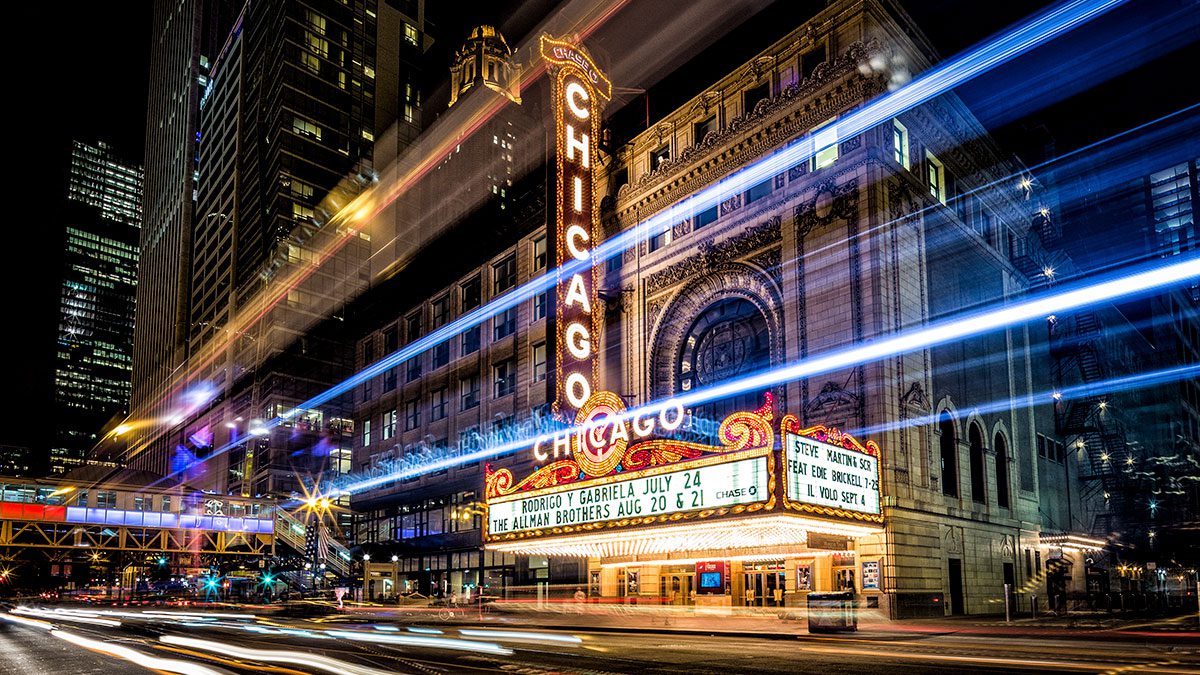I have lived more years in Japan than in my native country, the United States. My impressions of American life come from visiting Chicago for a couple of weeks every year. One thing that strikes me immediately, from the moment I arrive at O’Hare Airport, is just how little the basic infrastructure has changed over the more than two decades that I’ve been away.
After escaping from the chaos of customs and immigration and retrieving my suitcase, I head to take the El into the city, each time getting a bit lost since the signs are so confusing. The trains have not changed in appearance since as far back as I can remember. Even the new train cars introduced on some lines are nearly identical to the old ones, whereas over the same period of time the subway and commuter trains in Tokyo have never ceased to evolve.
The trip into the city can also be stop and go, since some sections of the tracks are in too poor a condition to travel full speed on. I pass through the northwest side of the city, through the Logan Square station, which was my stop when I lived in Chicago in the early 1990s – a Polish and Puerto Rican neighborhood at the time that has since been ‘gentrified’ – and then moving on toward Wicker Park, which was already well on its way toward Yuppification back then. The lumbering heaviness of the trains, like the potholes in the streets, strike me as a sign of the price paid for endless wars.
I get off at the State/Lake station and walk up the great shopping street of Michigan Avenue, ‘the Magnificent Mile,’ toward my parents’ apartment. This is a street familiar to any visitor to the city. A tourist who walks north from the Art Institute on this street, up to around the John Hancock Tower, will probably come away from Chicago with the impression of a prosperous city, provided that he or she gazes up high enough to miss the beggars lining the sidewalks and holding cardboard signs explaining their predicament.
Cops are plentiful all along Michigan Avenue, standing in groups of three or four on the corners, earning a paycheck. This a great ‘murder capital,’ but you’d never know it from walking around any of the blocks east of North Michigan Avenue, the so-called ‘Gold Coast.’ And there seem no shortage of shopping bags in people’s hands on the weekends.
Chicago’s façade is magnificent, all along the lakefront, with splendid high-rise apartments and parks bordering the oceanic Lake Michigan. But travel a couple miles west and the magnificence starts to fade. This is a strong impression I have of life in the United States in general – the remarkable juxtaposition of splendor and decay. Of course, similar extremes can be found in any country, including of course Japan. The bourgeois neighborhoods of Meguro or Setagaya in the center of Tokyo have little in common with the suburbs of Saitama or Chiba. But the extremes in the United States seem much more – well, extreme.
To visit the campus of the University of Chicago in Hyde Park or Northwestern University in Evanston and observe the bright sons and daughters of the middle class beaming with optimism and then witness the expressions of desperation or exhaustion on the faces of poverty in other neighborhoods is to wonder whether all these people can possibly be living in the same city.
No wonder, then, to hear the almost hysterical appeals to nationalism and see the astounding number of stars and stripes on display. How else could the ruling class hope to create any social bond among people facing such different life circumstances? Divide and conquer – that too, of course – but also try to convince the conquered that they should be darn proud to be Americans.
The absurdity of the ideology force-fed to the American citizen or ‘consumer’ is on full display at any sporting event. On my recent visit I attended a White Sox baseball game. At some point a soldier back from one of the wars ‘we’ are fighting was brought out onto the field. That was the cue for every man, women, and child to spring to their feet and applaud. ‘Home of the free, land of the brave’ sang the spectators at the beginning of the game, but to my eye they looked like brainwashed cowards. Even pressuring baseball fans to sing the national anthem and cheer on a soldier was not enough: during the seventh inning stretch they were called on to sing ‘America the Beautiful.’
It was unsettling to see how ‘normal’ this behavior seemed to have become, but I was still far enough removed from it all to see the similarities between Comiskey Park and a stadium in Pyongyang.
Even though at such moments I feel very much like a stranger in my own land, I don’t want to imply that Japanese capitalism is somehow better than that of the United States. One thing that has become perfectly clear to me after living in a foreign country for over two decades is that nearly every social problem in the United States finds its equivalent in other countries, perhaps with the exception of the number of deaths related to America’s remarkable gun culture. I might have left the US in the mid-1990s in the hope of finding a country that was more humane, but I’m living with the same stresses from work and daily life in Japan that my family members and friends face in the States.
Like many others living in a foreign land, I passed from an initial period of infatuation with the cultural differences followed by a much longer period of disillusionment before eventually arriving at the simple conclusion that Japan is just a capitalist country like any other, facing the irresolvable contradictions of that form of society. Whatever is ‘weird’ about Japan, just like the things that now strike me as strange about the United States, is a manifestation of those contradictions, of the basic insanity of a system in which nearly every social decision is shaped or limited by considerations of profit.
I’m usually fairly happy to return to Japan after my visits to the States, simply because I’ve grown accustomed to living there. Human beings are remarkably adaptable. We’ve even managed to live somehow under an inhumane system that simply uses us as a means to profit. So we will have no problem whatsoever adapting to the new sort of daily life that will emerge from a complete transformation of society.



